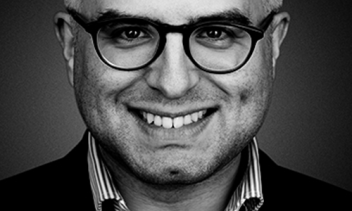In 1883, the American author Henry James (1843-1916) received a distressing letter from Grace Norton, a fellow writer and friend who was suffering from depression. His (now famous) letter in response opens with these words:
Before the sufferings of others I am always utterly powerless, and the letter you gave me reveals such depths of suffering that I hardly know what to say to you. This indeed is not my last word—but it must be my first.
After this powerful affirmation of Norton’s suffering, James continues:
You are right in your consciousness that we are all echoes and reverberations of the same, and you are noble when your interest and pity as to everything that surrounds you, appears to have a sustaining and harmonizing power. Only don’t, I beseech you, generalize too much in these sympathies and tendernesses—remember that every life is a special problem which is not yours but another’s, and content yourself with the terrible algebra of your own. Don’t melt too much into the universe, but be as solid and dense and fixed as you can. We all live together, and those of us who love and know, live so most. We help each other—even unconsciously, each in our own effort, we lighten the effort of others, we contribute to the sum of success, make it possible for others to live.
No stranger to pain, James is staking a road through suffering that refuses to let go of either the particular or the universal. Rabbi Avraham Isaac Kook (1865-1935), wrote the following words close to a century ago, in his journal:
There is suffering in the world that cannot be filled, until the whole world is rectified.
Rav Kook is famous for this particularly poetic brand of universalism and his long and deep concern in both the particularity of the Jewish people as well as the universal aspirations of humanity. This past year, the entire world learned this lesson in the most tragic way possible. The suffering of one nation, of one person, is deeply universal. If the adage dictates that the “personal is political,” we might say this: the personal is universal.
This month, we are thinking about social justice. A complicated and rich part of the Jewish story, engagement in social justice has excited and divided Jews throughout history. In some ways, this is the story of a long conflict at the heart of the Jewish consciousness, around the ideas of particularism and universalism. While much of the prophetic vision of Judaism sees the goals of the Jewish project as being broad and universal, the course of history has led Jews—and in consequence Jewish values—to find expression in an increasingly particularistic manner as well.
The Jewish story is powerful both for its universal aspirations and its particularistic expressions, for how we tell our own story and how we take part in writing the broader story of this world. Although we have been enclosed by high walls until and through much of modernity, Jews have been active participants in the writing process of modern history, pushing radical social change throughout the world.
Some think of the questions of social justice as either/or: either focusing on the Jewish community, or the world. However, we might opt to choose both: the particular and the universal, the Jewish story and the world’s story, the suffering of the individual and the suffering of the world.
Rav Kook understood this poignant truth. In one of his most powerful passages, he speaks of the four-fold song, four layers of spiritual or emotional connection one can feel. His words provide the perfect introduction to the issues we are thinking about this month.
There is one who sings the song of one’s soul. Inside of one’s soul one finds everything. There one experiences one’s total spiritual fulfillment.
And there is one who sings the song of the nation. One leaves the boundaries of the individual soul, which one finds narrow and not idealistic enough. One yearns for great heights. With a deep love one unites oneself to the entire Jewish people and sings its song. One is pained by its sufferings and finds happiness in its dreams. One is immersed in deep thoughts concerning its past and future, and tries to understand its inner spiritual nature with love and a wise heart.
And there is one whose soul is so all-encompassing that it expands beyond the limits of the Jewish people. One sings the song of humanity. One’s spirit ascends and becomes concerned with the greatness of mankind and its Divine image. One seeks humanity’s ultimate purpose. One looks forward to its ultimate perfection. From this source of life, one draws all of one’s thoughts and insights, one’s ideals and visions.
And there is one who rises even higher until one unites with the entire world, with all creatures, and with all of existence. And with all of them, one sings. This is a person who is immersed in ‘Perek Shira’ [Nature’s Song] each day that is guaranteed the world to come.
And then there is one who rises up with all these songs together. Each gives its voice. Each plays its melody. The song of the soul, the song of the nation, the song of humanity and the song of existence. And each one harmonizes inside of him at every moment and at all times. And this simplicity in its fullness rises to become a song of holiness, the song of God, The song of Israel…Yisrael – Shir El. It is a single song, a double song, a threefold song, and a fourfold song. It is the Song of Songs of Solomon, the Song of Songs which is Solomon’s (Cant. 1:1), King to Whom Peace belongs.
Each person has a song. Which is yours? Is it the individual that concerns you? The Jewish community? The world? Or is it broader – all of existence? Join us in thinking about social justice, and the many songs of social activism and engagement.








